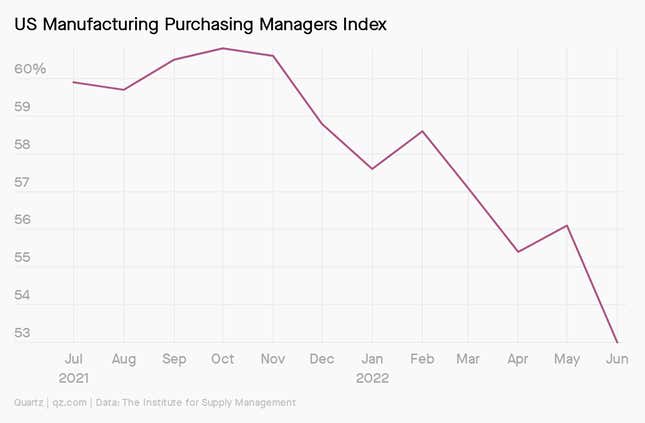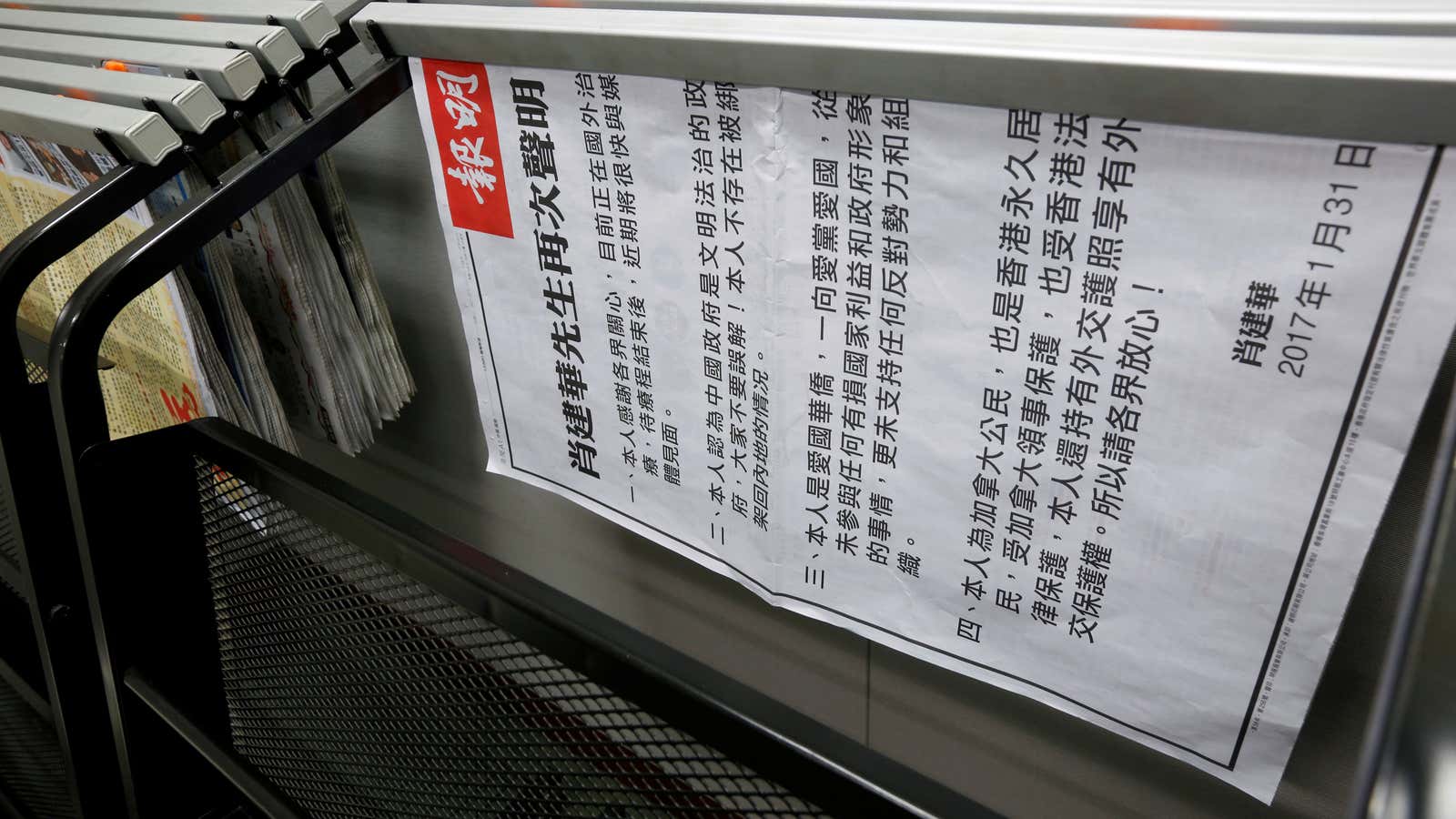Good morning, Quartz readers!
Here’s what you need to know
A Chinese-Canadian billionaire was put on trial in Shanghai. Xiao Jianhua was allegedly abducted from a Hong Kong hotel in 2017. It remains unclear what charges he’s facing.
Putin declared victory in the Luhansk region of Ukraine. Russian forces will likely now focus on capturing Donetsk.
Hackers claimed to have stolen a huge database from the Shanghai police archive. If confirmed, the theft of billions of Chinese citizens’ records would represent China’s largest data breach.
China’s foreign minister called for “political reconciliation” in Myanmar. Wang Yi visited the country for the first time since the 2021 military coup.
British legislators want to ban Chinese CCTV manufacturers. Hikvision and Dahua are already banned in the US for their alleged ties to human rights abuses.
A month-long state of emergency was declared in Uzbekistan’s western region. At least 18 people died in clashes sparked by Tashkent’s plans to curb Karakalpakstan’s autonomy.
A crypto exchange platform in Singapore halted operations. Vauld, which is backed by several prominent venture capital firms, cited financial difficulties.
What to watch for

The US Federal Reserve, which has been focused on bringing prices down for the past few months, knows its recent actions could trigger a recession. Its tools, however, only affect the demand side of the economy. The central bank can’t increase the oil supply, build semiconductors, produce more aluminum, or speed up logistics.
What the Fed can do is respond to data in real time, and lower interest rates if it looks like inflation is coming down.
Even though new manufacturing data show supply chain snags persist, the Fed may be hiking too fast, and dampening demand for industries that need to invest in equipment and structures that would build the US economy’s resilience in the long term.
Have a nice flight, Albert
This vacation season, there’s little to suggest that staff strikes, canceled flights, and C-suite resignations are going to be over soon. But there’s a silver lining: airports might be getting a tad easier to navigate thanks to the personalized flight information boards that Delta Airlines is piloting in Detroit Metro Airport.
The company behind the boards, California start-up Misapplied Sciences, has created a new technology called “Parallel Reality” which can display information for up to 100 travelers simultaneously. The boards can project millions of light rays in different directions, and uses digital identification like facial recognition, to match information to passengers.
Parallel Reality is no more vulnerable to data breaches than existing systems, according to a Delta representative. The hope is it can help declutter information passed along to travelers as they negotiate the gates, sandwich shops, and metal detectors of airport life.
Our Crispr future
It’s been a decade since the gene editing process known as Crispr came onto the scene. Here are just a few of the things scientists have done with Crispr since:
😷 Fought cancer. From the lungs to the cervix, Crispr has shown promise in combating many different kinds of cancers. Some experiments use the enzyme to harness the immune system to attack the cancer.
🧬 Treated heritable diseases… including cystic fibrosis, congenital blindness, and muscular dystrophy.
🦠 …and infectious diseases such as HIV.
🌾 Improved crops. Using Crispr, researchers were able to make crops grow, look, and taste different, as well as offer more nutrients and make them more resistant to disease.
Crispr’s teen years are looking even more promising. If you’re a member, check out our latest issue of the Forecast to understand more about what it can do for us in the next decade. ✦ If not, take 40% off a membership and get this and other issues of the Forecast in your inbox every weekend.
Quartz’s most popular
📈 How Gamestop trading nearly killed Robinhood
📵 India’s government may be banning Sikhs on social media
🔋 Tesla is killing off coal and gas plants with its giant battery projects
💳 Zambia is getting virtual debit and credit cards
🏭 What the Supreme Court ruling means for US climate change policy
Surprising discoveries
Giant snails are attacking Florida. The invasive species, which carries a parasite called the rat lungworm, has sent a county into quarantine.
Nobody bid for the first Chevy NFT. It even comes with a free “minted green” 2023 Corvette Z06, but still no takers.
Poop law reform may soon be on New Zealand’s docket. The Responsible Campers Association wants a responsible revision of the law, which permits people to go in public (if alone).
A Burger King employee got a six-figure gift. After working 27 years at the fast food chain, Kevin Ford got a miserly thank you from the company—but others stepped up.
You may now kiss the alligator. In a traditional Indigenous ritual, a mayor in Mexico married a reptile bride to bring prosperity.
Our best wishes for a productive day. Send any news, comments, free mint Corvettes, and gifts of prosperity to hi@qz.com. Reader support makes Quartz available to all—become a member. Today’s Daily Brief was brought to you by Sofia Lotto Persio, Cassie Werber, Nate DiCamillo, Susan Howson, and Julia Malleck.
